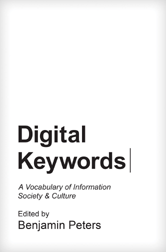The digital environment is like a universe of its own, and those who engage in its territories should educate themselves about its rules and its lack thereof. In this world where people and their ideas interact, it is important to use technology responsibly, respectfully, and critically. Most of us encounter information in its digital form regularly on the internet, in our coursework, jobs, and through social media. Through technology, information is stored and shared.
Digital Skills
It's important in our modern world to know how to access, use, and produce digital information. While digital literacy encompasses basic technology skills, it's much more than that. Consuming and producing digital information effectively requires one to have critical thinking, communication, and relationship skills too.
Here are the digital skills that Forbes Magazine (Marr, 2022) says that we need to participate in the digital world:
- Keeping on top of emerging new technologies
- Understanding what tech is available and how it can be used
- Using digital devices, software, and applications – at work, in educational settings, and in our everyday lives
- Communicating, collaborating, and sharing information with other people using digital tools
- Staying safe and secure in a digital environment
Privacy and Security
Lots of information about our lives is stored in the form of digital information and is vulnerable to being accessed and shared by people who don't have permission to access it. Some of this permissionless access is inadvertent while other access is intentional and malicious. As our digital footprints have expanded and our use of technology grows, it becomes increasingly important to learn how to protect our personal information. Fortunately, there are ways to minimize our risks and to maximize our security in the digital realm.
Here are some tips (Wamsley, 2020):
- Minimize the amount of information you share and have stored online
- Make sure that you have strong passwords
- Don't click on links in texts or emails that come from "weird domains"
- Change your privacy settings
- Download security updates
- Use encrypted apps for messaging
Check out the South College Library's Information Literacy Research Guide to learn more about increasing your digital literacy.
Featured Library Resources

Digital Keywords: A Vocabulary of Information Society and Culture by Benjamin Peters
Publication Date: 2018
Digital Keywords gathers pointed, provocative short essays on more than two dozen keywords by leading and rising digital media scholars from the areas of anthropology, digital humanities, history, political science, philosophy, religious studies, rhetoric, science and technology studies, and sociology. Digital Keywords examines and critiques the rich lexicon animating the emerging field of digital studies.

Publication Date: 2022
Haider and Sundin question what we accept as truth, fact, and knowledge—and how those ideas shape our ability to write, think, and communicate. In an age of information overload, this book digs into what it really means to be media literate and explores how power, perception, and literacy interact in the digital age.
Credo Reference cover 11,000+ reference topics from all major academic subject areas and is a great starting point for research. Entries include images, quotations, audio files, videos, ebooks and full text articles on a variety of topics. In addition to reference topics, Credo includes over 700 academic reference books. Credo's Nursing and Allied Health Collection provides access to 23 current nursing ebooks.
Sources
Marr, Bernard. (2022, July 22). The 4 digital skills everyone will need for the future. Retrieved from https://www.forbes.com/sites/bernardmarr/2022/07/22/the-4-digital-skills-everyone-will-need-for-the-future-of-work/?sh=3d102c0aa7e2
Wamsley, L. (2020, October 13). Your technology Is tracking you. Take these steps for better online privacy. NPR. https://www.npr.org/2020/10/09/922262686/your-technology-is-tracking-you-take-these-steps-for-better-online-privacy


Did you know that the South College Library offers students, faculty, and staff access to over 100,000 ebooks? This month's theme is Remember September, where we explore themes of nostalgia, memory, and vintage in contemporary culture and society. Start with these books of poetry, history, fashion, and medicine and then dive into the library's ebook collection to find more!
Remember September
Publication Date: 2020
Places of Memory takes a new look at spatialized practices of remembrance and its role in reshaping societies from prehistory to today, gathering researchers representing diverse but complementary fields of expertise. This collection provides important insights into the great variety of human and social reactions examining memory, encompassing aspects of remembering, the loss of memory, reclaiming memories, and remembering things that may not have happened.
Publication Date: 2022
How do we engage with food through memory and imagination? This expansive volume spans time and space to illustrate how, through food, people have engaged with the past, the future, and their alternative presents. The editors have brought together first-class contributions, from both established and up-and-coming scholars, to consider how imagination and memory intertwine and sometimes diverge. Chapters draw on cases around the world--including Iran, Italy, Japan, Kenya, and the US--and include topics such as national identity, food insecurity, and the phenomenon of knowledge. This volume is a veritable feast for the contemporary food studies scholar.
Publication Date: 2021
Publication Date: 2021
Publication Date: 2023
Publication Date: 2012